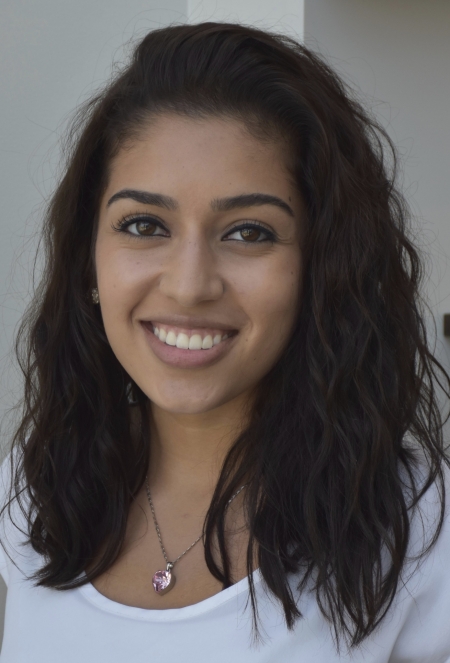ROLE MODELS RANGE FROM MICHAEL PORTER TO JAY Z
It wasn’t just family members who led the Best & Brightest into business. Sam Benger, an All American running back at Carnegie Mellon University, credits a high school teacher, Steve George, for showing him how business could help people during his personal finance and business management courses. Notably, George was known for experiential learning courses that gave students real responsibilities and pushed them out of their comfort zones. For example, Benger partnered with a jewelry store owner to develop a strategy that boosted sales and branding — an exercise that reinforced the importance of asking questions and listening before acting. “I learned more in his two electives than I did in many of my other core courses.” Benger says.
Some influences involved people whom the Class of 2018 never met. Silvia Cristina Rivera’s direction was crystallized after watching a TED Talk by Professor Michael Porter, which “lit a fire in my belly” she says. “I had no idea what I wanted to study, but I knew that the two things I wanted most after college were to do something worthwhile and to never feel stuck or pigeonholed by what I had studied. After Porter’s talk, I was sold on studying business, and the role of business in solving social problems is a question I revisit pretty often when thinking of what I want to do going forward.”
Other inspirations came from the most unexpected of places. Exhibit A: Jay Z — whose example led Kayvon Asemani to study business at Wharton by day and perform hip hop by night. “Jay Z was the perfect combination of strong musical skills and great business savvy,” Asemani explains. “I always wanted to make music and share it with the world, but I saw so many great artists who couldn’t reach people because they didn’t understand the business behind the music. I had a great understanding of music theory through my trombone lessons before college, so I had to make a decision as to whether I wanted to pursue something like a Juilliard route or a Wharton route. Jay Z influenced me to focus on the business behind the music and all the synergistic business opportunities tied to it and then use those skills to build teams around me that specialized in the music, which led to me choosing the business school route in college.”
SUMMER CAMPS SPARK INTEREST IN BUSINESS
Family members and celebrities may sway some students, but business-themed organizations and events sometimes sealed the deal. In high school, Stephanie Castro was part of DECA, where she got a head start on business concepts and cases before enrolling at the University of Massachusetts-Amherst. Rakiya Cunningham’s interest in business was roused during a week-long summer program at the University of Texas known as DYNAMC (Discover Yourself in Accounting Majors and Careers). By the same token, J. Scott Allen, III was shipped off — pretty much kicking-and-screaming — to Michigan State’s Summer Business Institute — a program that “propelled” him towards a supply chain major and a job at PwC.
Even freshman orientation played a role in some cases, such as the University of Florida’s Abigail Fielding, who’d come to Gainesville planning to study engineering. “When I got to the orientation,” she says, “they asked all students to attend two information sessions, one for the college they want to be in (for me, engineering) and one for a college they have never considered (I went to business). When I went to the session and listened to all of the resources and amazing experiences the students had in the business college, I got hooked and changed my major at the orientation.”
For that matter, an interest in business was often seeded during the most unexpected times for the Best & Brightest. That includes family decisions, such as when Bowling Green’s Julie Kessler was in junior high school. “My family chose to ditch cable TV because my older siblings and I wanted cell phones, and it was important to my parents that we kids understand how spending money works,” she shares. “It’s tradeoffs. It’s choices. It’s moments of generosity and moments of careful budgeting. I started studying business my freshman year because I love working with people and I grew up with a genuine interest in how managing money works.”
For the University of Maryland’s Sarina Haryanto, a love for business stemmed from a love of the place where she felt most comfortable — a place that reminded her of her potential and values as much as fulfilling a coffee and cheesecake fix.
“Back in high school, I often went to Starbucks to do homework in between extracurricular activities,” she reminisces. “I found this relaxed ambience conducive to my productivity and wondered what went on behind-the-scenes to craft high quality coffee. Before my first day of college, I participated in an Innovation Immersion trip in Silicon Valley and the Pacific Northwest. The most memorable company visit was Starbucks headquarters because that is where I first discovered supply chain management from a Smith School alumna. The two tails of the Siren also remind me that I don’t have “one true calling” and I can integrate multiple interests into my life.”
DON’T MISS: THE BEST & BRIGHTEST BUSINESS MAJORS – CLASS OF 2018













Questions about this article? Email us or leave a comment below.